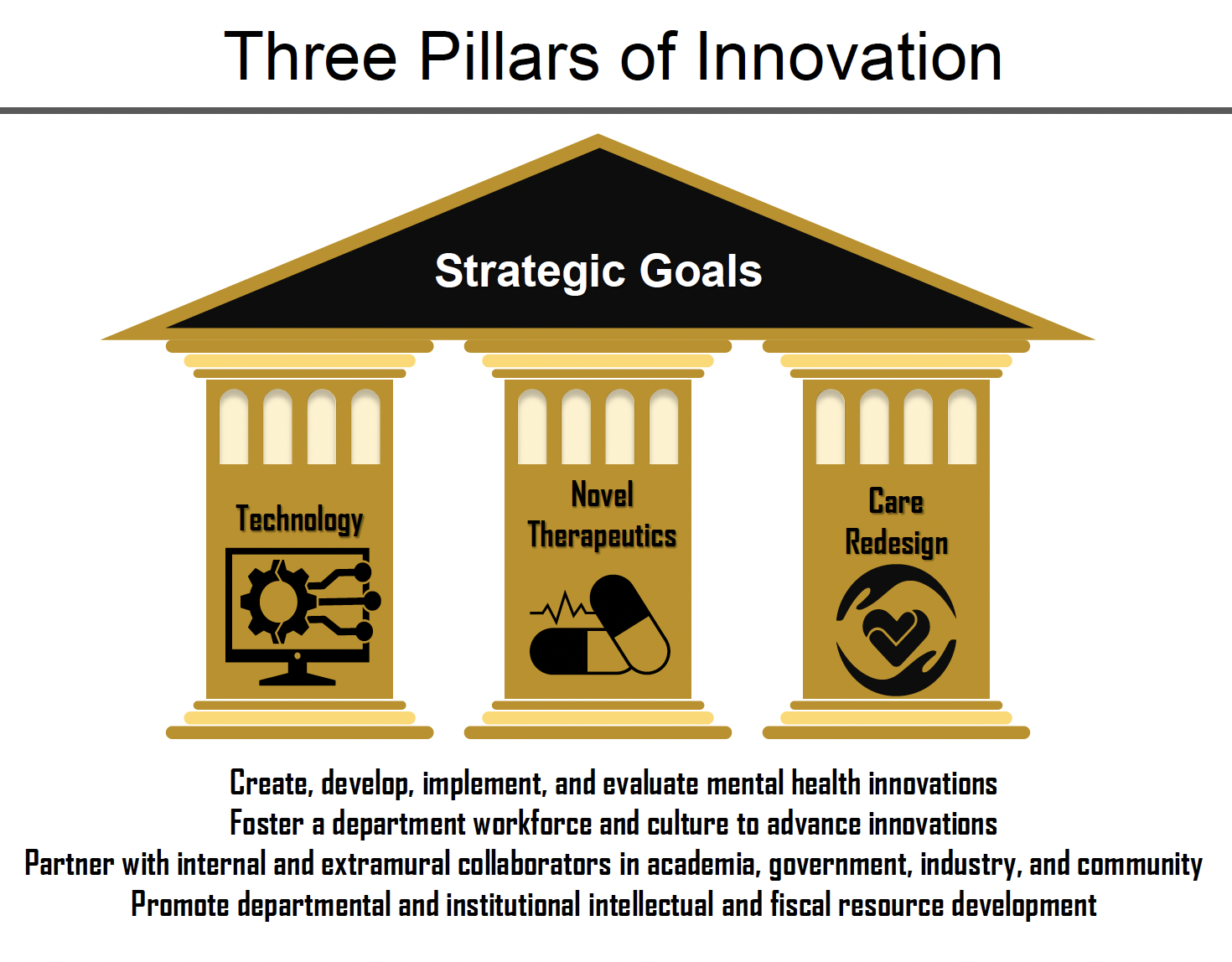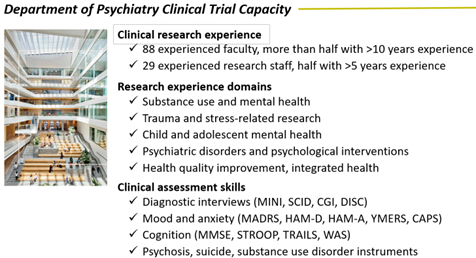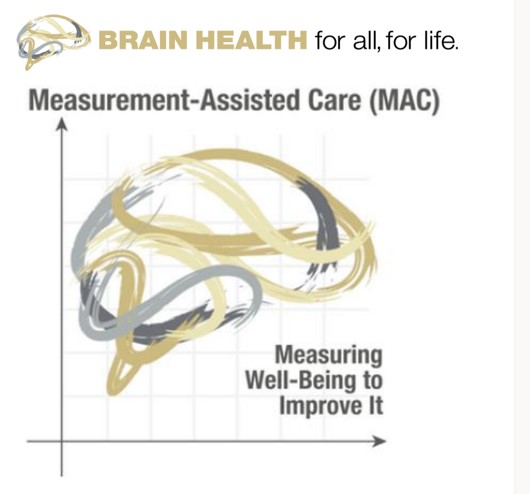BBICen Home
-(800-x-100-px)-(800-x-240-px)-(1200-x-360-px)-(1200-x-360-px)-(6)249d1b50-8a9a-4102-a3ae-58142490f149.png?sfvrsn=9c4e61b4_1)
Programs and Events
Resources
Leadership
Avielle and Jeremy Richman Initiative
CIBH+
BBICen News
-Coming soon-
Accomplishments
-Coming soon-

INNOVATION PILLAR GOALS
The following goals will be pursued through each of the three pillars:
BBICen Accomplishments

BBICen Numbers
BBICen has 34 projects in its Center Portfolio. Has 13 projects ongoing or completed in the Technology Pillar. 5 projects ongoing or completed in the Therapeutics Pillar and $ 8 million Investiture ($5 million from Chancellor & $ 3 million from external funding)

MAC
Measurement Assisted Care (MAC): The Measurement-Assisted Care (MAC) program is an interdisciplinary quality improvement effort to increase the use of measurement-based care in Department of Psychiatry outpatient clinics. Measurement-based care is the use of repeated patient-reported outcome measures (PROMs) to inform treatment at the level of the individual patient. It is widely regarded as a best practice in mental health care. In MAC, patients are prompted to complete regular questionnaires about their mental health in the online patient portal prior to their clinic visits. These data become available to clinicians in the Electronic Medical Record for use during visits. In the first year of the program. MAC was implemented in 6 adult outpatient clinics with 4665 unique patients and 175 clinicians. PROM questionnaire completion rates increased from 5% to 60% or higher in MAC clinics. More than 90% of clinicians reported PROM data was useful in working with patients and 78% reported they used PROMs to guide care In the 2nd year of MAC, the program has expanded to additional adult outpatient clinics and is planned to expand further to integrated behavioral health settings and youth. There will also be efforts to refine workflows to increase the completion of PROMs for in-person visits.

Breaking Boundaries: Psilocybin’s Role in Treating Depression
Andy Novick, MD, PhD is an assistant professor focused on understanding the effects of sex steroids on the brain and evaluating novel drug therapies for psychiatric disorders, specifically psychedelics. He is currently leading a clinical trial investigating psilocybin, the active compound in magic mushrooms, as a treatment for treatment-resistant depression. The trial involves administering either a psychedelic dose or a placebo to participants, with outcomes measured through functional magnetic resonance imaging (fMRI) and assessments of depression severity. This study aims to better understand how psilocybin can help patients who have not responded to traditional treatments. Setting up the trial required extensive preparation, including designing protocols, obtaining FDA and DEA approvals, and training a specialized team. The study involves 40 participants and will run for over a year, using neuroimaging and blood tests to identify biomarkers related to psilocybin response. Under the Brain and Behavior Innovation Center’s focus in novel therapeutics, Andy’s team is also exploring innovative treatments for difficult-to-treat symptoms of depression, using a rigorous scientific approach that focuses on brain function rather than self-reported symptoms. His work in psychedelic-assisted therapies marks an exciting shift in psychiatric treatment-resistant mental health conditions.